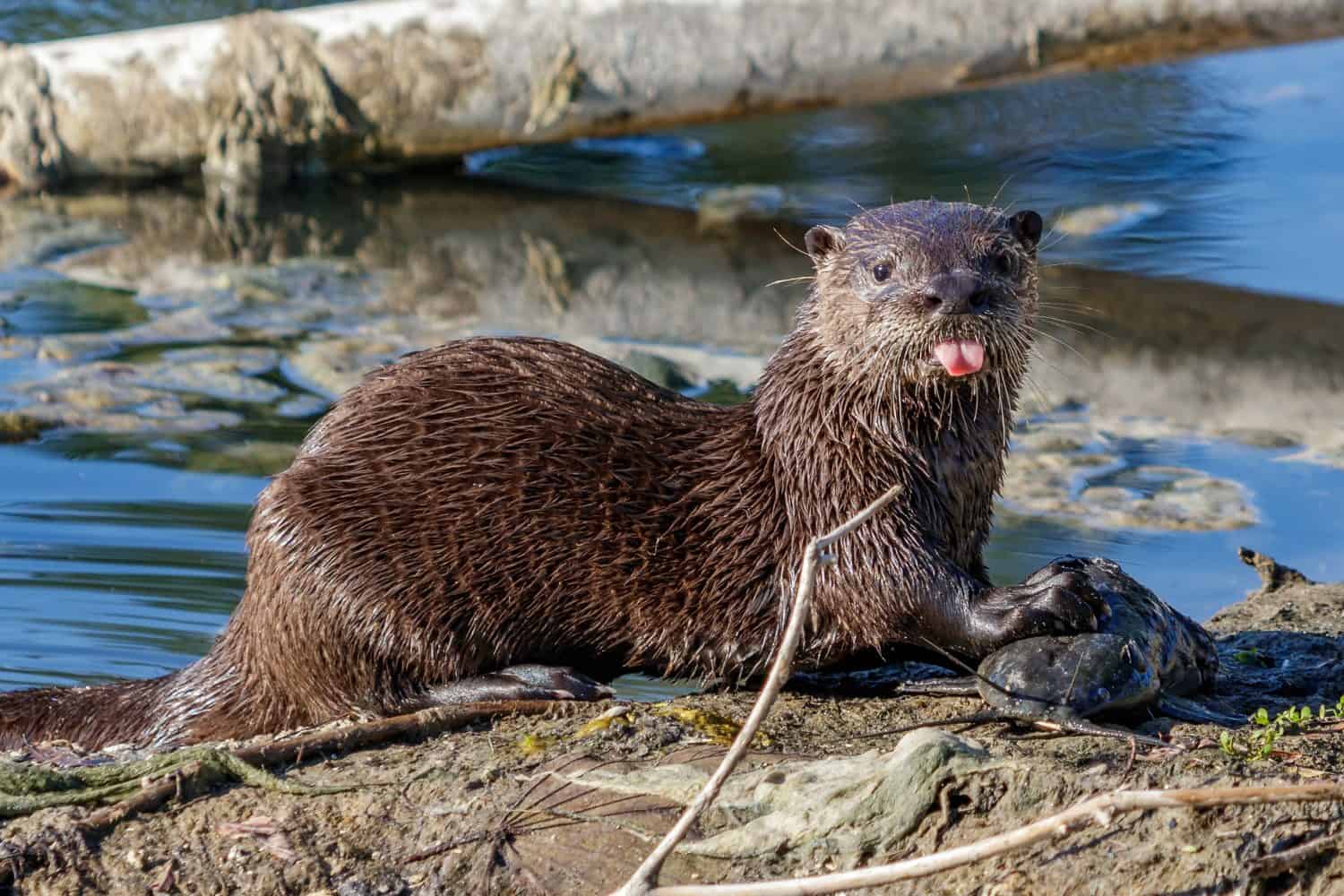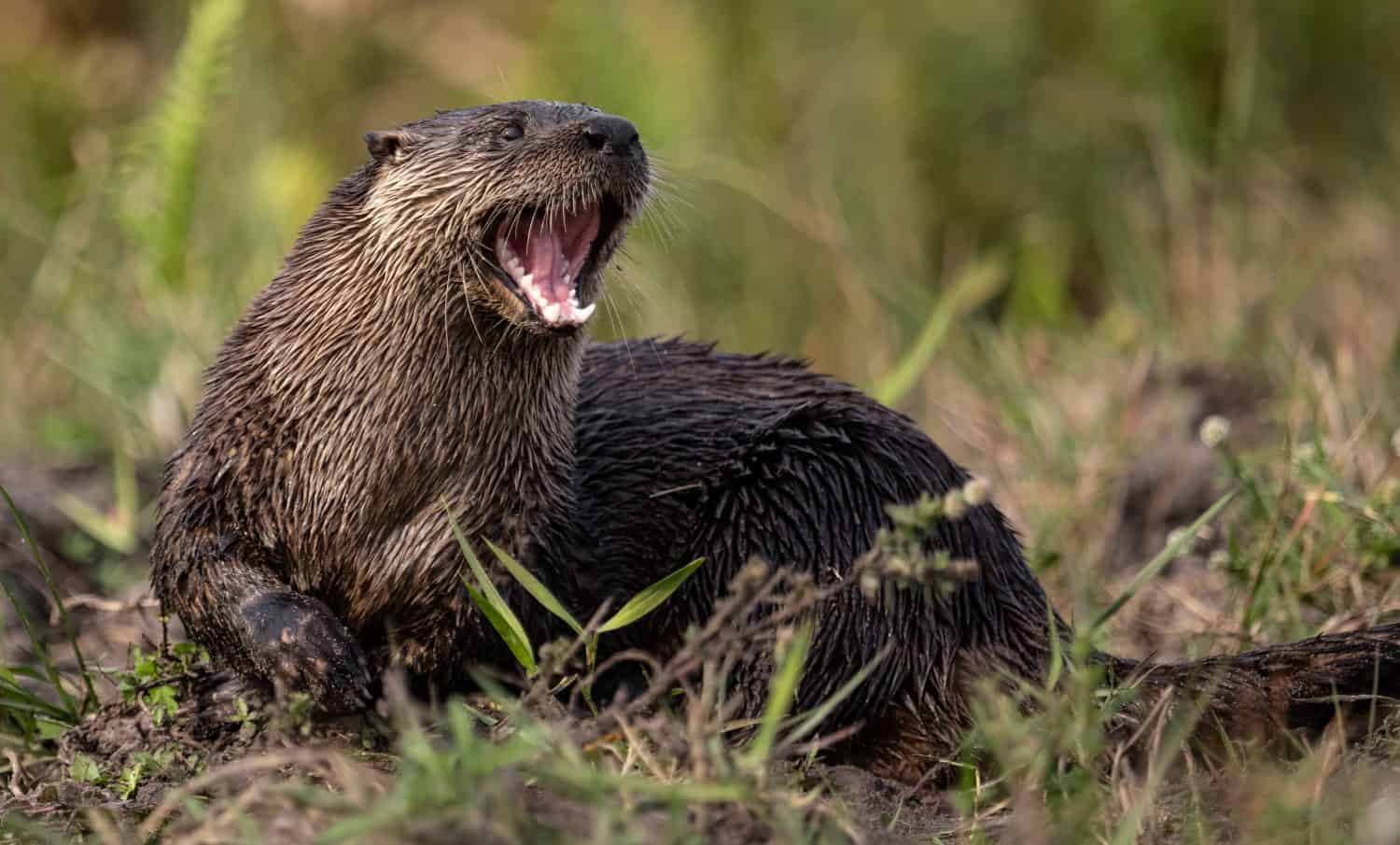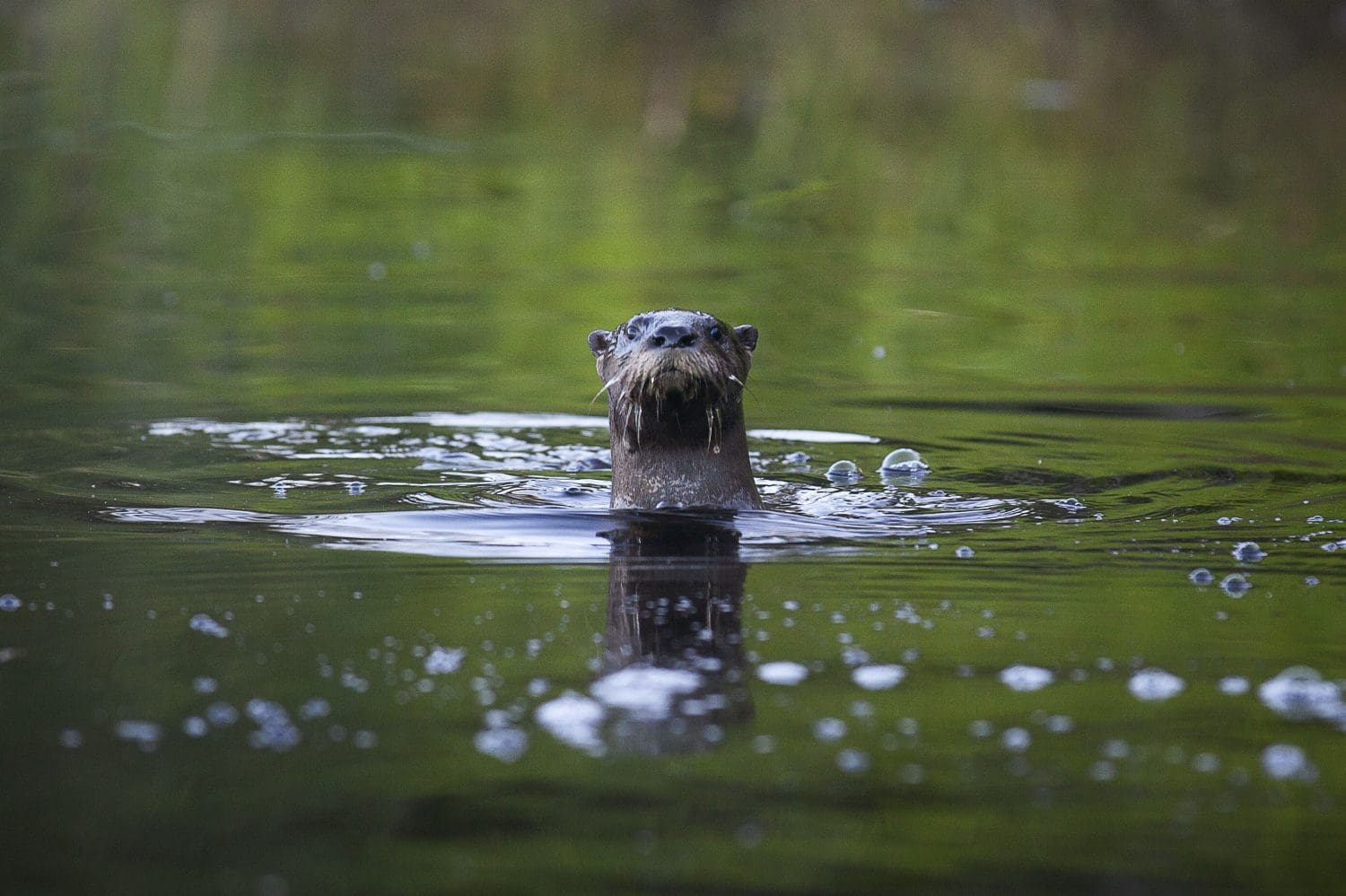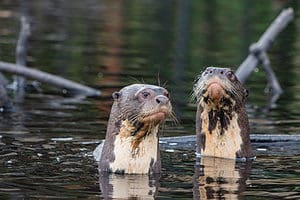We’ve all seen photos of otters on the internet, and many of us have visited them in zoos. However, have you ever been curious about the natural habitat of these adorable animals? You might be surprised to learn that otters live all across North America, and many call the state of Florida their home! Whether you’re an otter enthusiast or just someone casually interested in spotting these adorable creatures, here’s everything you need to know about otters in Florida.
Otters: A Brief Overview

On average, wild otters can live up to 15 years. However, otters raised in captivity will have longer lives.
©Microfile.org/Shutterstock.com
There are 13 species of otters globally, however, the one that is native to North America is the river otter. This mammal resides in every U.S. state, and depending on the state, the habitats they prefer vary greatly. According to the Smithsonian’s National Zoo, “They live in riparian zones, often in the same areas as beavers. Their aquatic habitats can be both marine and freshwater: streams, rivers, lakes, ponds, and marshes.”
Although some river otters choose to live alone, many choose to live in small social groups. Their diets are varied, and they typically eat a variety of seafood. Mud minnows, mussels, crayfish, and carp are all staples for them. However, otters are also known to eat small birds, insects, and mice. Sometimes, they can even get their hands on young beavers! These mammals may look cute and unassuming, but they are formidable predators. They are at the top of the food chain, and they only have a handful of natural predators.
Is It Safe to Be Around Wild Otters?

Individuals who choose to encroach on a wild otter’s space are at risk for an attack.
©Harry Collins Photography/Shutterstock.com
Because otters have such a sweet disposition and engage in adorable antics, it might seem ridiculous that certain people think that they might be dangerous. As shocking as it may be, these fears are somewhat valid. The short answer to this question is yes, it’s perfectly safe to be around wild river otters, as long as you’re a safe distance away. However, individuals who choose to encroach on a wild otter’s space are at risk for an attack. In particular, mother otters with young babies are more aggressive, so it’s best to play it safe and stay away.
Although there is always a chance an otter attack might occur, very few cases of otter bites have been reported throughout the years. So, if you’re determined to go otter spotting, let this fact bring you some peace of mind. As long as you’re sensible and respectful, there is little risk in observing these adorable animals from a distance.
What Waters Otters Reside In

River otters can hold their breath for up to eight minutes!
©Jeff Feverston/Shutterstock.com
Now that you know it’s safe to be around wild otters, you might be wondering where you can go to observe them in their natural habitat. Luckily, river otters are native to many regions throughout the state of Florida excluding the Keys. One of these locations is Ichetucknee Springs State Park, which is home to a booming population of otters. According to Florida State Parks, “They usually live in burrows dug into the riverbank, called holts, that have underwater entrances for easy access to and from the water. ” In addition to Ichetucknee Springs State Park, river otters reside in the Everglades, Wekiva State Park, and the Corkscrew Swamp Sanctuary. This list is by no means exhaustive, as otters are incredibly common throughout the state.
Otter habitats aren’t just limited to state parks in Florida. Several zoos are home to otters as well, such as the Brevard Zoo, Central Florida Zoo, Zoo Miami, and Animal Kingdom. Spotting one in the wild may be challenging and tedious for some, so visiting a zoo is a surefire way to make sure that you’ll get a chance to see one up close while still being safe. In addition, many residents report seeing these mammals in their own backyards. If you’re already living in the Sunshine State, an otter might pay you a visit someday, so be on the lookout!
Final Thoughts
Even though otters are undeniably adorable, it’s hard to ignore the fact that they’re also incredibly capable of defending themselves. Although they aren’t typically aggressive, it’s still important to exercise caution when visiting them in their natural habitat. As we stated above, as long as you’re respectful of them, they’ll likely be respectful to you. So that means that you can go ahead and start planning your trip to see them!
The photo featured at the top of this post is © Microfile.org/Shutterstock.com
Thank you for reading! Have some feedback for us? Contact the AZ Animals editorial team.







